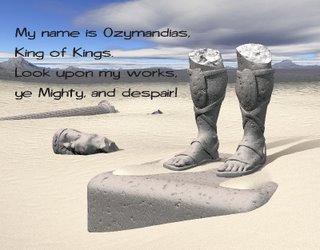About the Poem: “Do not go gentle into that good night“, written by Welsh poet Dylan Thomas in 1951, is considered to be one of his finest works. It is widely considered to be the most famous example of the poetic form known as the villanelle, a nineteen-line poetic form consisting of five tercets followed by a quatrain. There are two refrains and two repeating rhymes, with the first and third line of the first tercet repeated alternately until the last stanza, which includes both repeated lines. The poem has no title other than its first line, “Do not go gentle into that good night”, a line which appears as a refrain throughout. The poem’s other equally famous refrain is “Rage, rage against the dying of the light”. Originally published in the journal Botteghe Oscure in 1951, it also appeared as part of his 1952 collection In Country Sleep and other poems. To go through the annotations of the poem click here.
Lines 1-3:
Do not go gentle into that good night,
Old age should burn and rave at close of day;
Rage, rage against the dying of the light
Addressed to no specified listener, in the first stanza the poet tells him to not “go gentle into that good night.” The mention of Old Age gives us an idea that night is used as a metaphor for “death” or approaching demise. Dylan Thomas clearly sets the tone for the rest of the poem throughout his first stanza, that is, it is not dignifying or befitting for an honourable man to die quietly in old age which inspires the reader to think that death is something that should be struggled with rather than being mutely embraced. Hence, the unknown listener is told to rebel with anger, power and madness to resist death. This first stanza almost acts as a message or a thesis statement for the rest of the poem since it clearly defines and outlines the speaker’s beliefs about aging and death which is contrary to the usual association of a peaceful dying with a good character and a chaste life.
Lines 4-6
Though wise men at their end know dark is right,
Because their words had forked no lightning they
Do not go gentle into that good night.
The metaphor of night as death continues here, with death figured as the “dark.” The speaker admits that the sensible realize death is inevitable and certain. Though he admits that death is a natural phenomenon, he urges them not to submit to it and realize their desire to be heard, understood and known since their actions or words have not reaped any results until now. The mention of “forked no lightning” can be interpreted as living, which we usually see as tranquil existence, is in actual like being struck by lightning, and it is only great men who can fork, or split that lightning by their magnanimous deeds. The poet is trying to invigorate the dying old men to live a little more and accomplish something remarkable, something that is worthy of forking lightning. This realization should fill them with the zeal and enthusiasm to expand their potential to rebel against death.
Lines 7-9
Good men, the last wave by, crying how bright
Their frail deeds might have danced in a green bay,
Rage, rage against the dying of the light.
The third stanza of this poem generates vivid imagery. The poet describes how the “good men” i.e. the virtuous and righteous moralists, face death. Dylan Thomas believes that true goodness is composed of fighting the inevitability of death with all your might and force and not being placid and accepting death as it comes. “Last wave” refers to the most recent generation of men and their death is compared to the crashing of sea waves, and their cry of contrition, as they might have been able to improvise upon their deeds if only they could have stayed in the beautiful bay a little longer, instead of crashing and ending on the shore. They “green” of the bay signifies life, health as the algae and sea weeds and plants make the bay look green, and the waves have to crash against the shore onto dry and barren sand. There is a touch of regret in these lines as the poet tells us how the dying men cry about how much more they could have consummated, if only they were allowed to live a little longer. Hence, just so that they can make their achievements more memorable, more significant, they must rage against death.
Lines 10-12
Wild men who caught and sang the sun in flight,
And learn, too late, they grieved it on its way,
Do not go gentle into that good night.
In the fourth stanza, the poet describes the attitude of “wild men” towards death. These men are so passionately involved in the adventurous and enthusiastic activities of their life that they are not aware of the mortal and transitory state of their lives. They are valiant heroes who face peril with blissful zeal. Sun symbolises the brightness in their life.The mention of “flight” immediately afterwards is indicative of the short span of life. They are engulfed in grief when realism of their mortality dawns on them. They realize they have lived all their life in ignorance. Now, even though their end is approaching, they refuse to submit because they still want to cling on to their adventurous and rejuvenated youth.
Lines 13-15
Grave men, near death, who see with blinding sight
Blind eyes could blaze like meteors and be gay,
Rage, rage against the dying of the light.
“Grave men” can refer to the solemn and depressed men as well as those inching towards death. These men are gradually losing their eyesight, but even in this frail state, they can utilise their “blind eyes” which still possesses fortitude to act as their defence against death. They might be losing their sight, but what is still have, is their vigour for life. Like meteors, they blaze bright, before finally falling and dying. The poet is trying to say that though the timing of death is inescapable, but the manner of death is not.
Lines 16-19
And you, my father, there on the sad height,
Curse, bless, me now with your fierce tears, I pray.
Do not go gentle into that good night.
Rage, rage against the dying of the light.
In the final stanza, the poet reveals that the above mentioned lines are not objective, but subjective. The poet has a personal stake in these lines as they are dedicated to his dying father. The ‘sad height’ refers to his proximity to death. It can also be interpreted as an allusion to looking down into the Biblical valley of death; the metaphorical mountain where the father stands at the edge of the mortal world. He begs his father to to cry out, proclaiming that anything directed at him by his father, be it a blessing or a curse, so long as it is accompanied by intensity , would be preferable to the current disposition of his father. In the end he pleads his father to muster all his will and battle against death instead of resigning to fate. He is unable to bear the sight of his father betraying his instinct to fight for life.
To go through the detailed analysis click here
Keywords: do not go gentle into that night summary (3.1),summary of do not go gentle into good night (2.7), do not go gentle into that night beaming notes (1.0), do not go gentle into that night theme, do not go gentle into that night notes, do not go gentle into that night questions, do not go gentle into that night meaning
Some online learning platforms provide certifications, while others are designed to simply grow your skills in your personal and professional life. Including Masterclass and Coursera, here are our recommendations for the best online learning platforms you can sign up for today.
The 7 Best Online Learning Platforms of 2022
- Best Overall: Coursera
- Best for Niche Topics: Udemy
- Best for Creative Fields: Skillshare
- Best for Celebrity Lessons: MasterClass
- Best for STEM: EdX
- Best for Career Building: Udacity
- Best for Data Learning: Pluralsight
















